
Heating oil is a reliable furnace fuel that serves countless American households every year. Its high efficiency, low cost, and steady supply make the colder months easier to bear. If you happen to use heating oil and you detect an odor, the question is, “Is this an issue?”. Indeed, heating oil has a unique oil smell, but this should not be a problem with an excellent containment system. Even if you catch a whiff of it, the heating oil smell will probably go away quickly. In the rare event that the issue persists, consider consulting a technician from Point Bay Fuel to improve your indoor air quality and determine what the issue is.
Is It Normal To Smell Heating Oil?
While it isn’t normal for the smell of heating oil to linger inside a home, there are instances that this can occur. Some cases are trivial and fleeting, while others are serious and persistent. Below are likely explanations for this phenomena:
1. A Recent Tank Refill
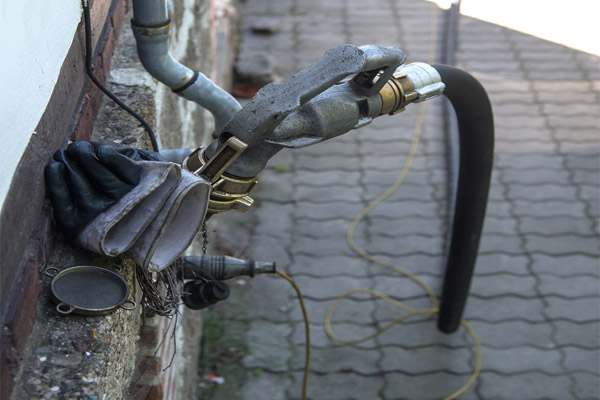
After a fresh delivery of heating oil, it is not uncommon for the smell of fuel oil to be in the air for a while. Give it a bit of time as it should dissipate on its own. The odor will be faint instead of overpowering. If this takes a bit longer, then the delivery crew might have spilled some oil on the ground.
Point Bay Fuel is proud to offer the safest and most reliable heating oil deliveries in Ocean and Monmouth Counties, New Jersey. You can count on us to deliver your fuel without any problems. Give us a call today to find out more about what our heating oil deliveries can do for you.
2. The Initial Furnace Use
Heating systems tend to be idle for long periods. People will only turn them on again when the temperature starts to drop. That initial firing up of the furnace tends to produce the smell of burning oil. It is a normal occurrence. There is no need to worry as it will go away.
3. A Clogged Furnace Filter
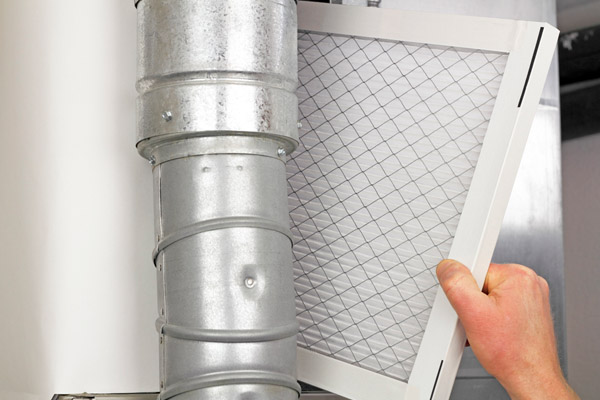
Oil smell might also be a sign that the furnace filter is blocked. HVAC air filter replacement should be performed regularly every 2-3 months or more, depending on your home. Check your oil furnace filter to see if this is the problem. In case replacement does not change anything, then consider other likely causes. Call Point Bay Fuel to schedule an appointment.
4. An Underlying Furnace Problem
The odor could point to a deeper problem with the furnace, such as inefficient operation. If the oil fails to combust 100%, then the leftovers could cause the smell to linger. You should also look into oil burner cracks as fumes might escape through them. An experienced HVAC technician from Point Bay Fuel should be able to diagnose the exact problem. You could also have a heat exchanger failure on your hands. Regardless, this type of situation requires to knowledge and skill of a licensed HVAC technician from Point Bay Fuel.
Is An Oil Smell Dangerous?

Many are concerned about the smell because of how it might affect health. This aspect is especially true for those who have an oil tank in their basement, an enclosed space. The truth is that heating oil fumes are far less dangerous than natural gas. The exposure to low concentrations of oil fumes is not as toxic. Fuel oil is also stable enough that explosions will not be an issue. Of course, it would still be best to avoid the fumes altogether.
Regardless, you should always call in an expert if you notice a lingering oil smell in your home. If you ignore it, it could lead to further and more complicated issues.
Symptoms due to short-term exposure should go away soon after the oil smell goes away. Long-term exposure should be avoided as it can lead to severe health problems. If you can’t trace the source of the odor, then seek help from a professional technician immediately.
What To Do If You Smell Heating Oil

Go over the list above and perform the recommendations. Change the HVAC air filter, check the burner for cracks, and inspect the ground for any spills. Turn off the heating system until you have solved the problem to be safe. Ventilate the area if the odor is present indoors. Open the windows to let the fumes out. Keep pets and children away from the area to protect their health.
If there are spills from an oil delivery, then try to use absorbent material to prevent oil spread. Isolate damaged materials if you see any and clean the surface with soap and water. These are just the basics for minor problems. Those who find themselves dealing with more than they can handle should consider calling for expert assistance. Sometimes there is more going on than what homeowners can see and smell. Therefore, a technician should come by to investigate.
Conclusion
Most people are sensitive to smell for good reason. This keen sense warns us about the dangers that we might not see or hear. Foul odors allow us to detect problems and solve them right away. If your furnace smells like heating oil, then you should be proactive in finding the cause. It is not normal for the heating system to give off fumes since the oil should be fully contained in the tank. Usual triggers include oil deliveries, initial oil furnace use, clogged HVAC air filters, and underlying furnace problems. With the help of an HVAC professional, you can identify the cause and solve the problem quickly.
Call Point Bay Fuel For Superior Home Comfort Solutions

Point Bay Fuel offers superior heating oil deliveries and HVAC services in Ocean and Monmouth Counties, New Jersey. Our heating oil deliveries are fast, reliable, and affordable, with your safety in mind. Likewise, we hire the best NATE certified technicians who can provide you with excellent HVAC tune-ups, repairs, installations, and replacements. Each of our techs has the knowledge and experience to service your HVAC system correctly.
Point Bay Fuel guarantees the most competitive home comfort service costs in the area. Our maintenance services can improve your comfort and energy efficiency while reducing your home HVAC costs. If you are interested in improving your indoor air quality, then look no further. Our experts know the most advanced solutions to achieve all of your home comfort needs. All of our services are backed with a guarantee to ensure your satisfaction. To schedule an appointment, give Point Bay Fuel a call today. We offer free, in-home estimates.
Contact us now by calling (732) 349-5059 to speak to one of our home comfort specialists!
The post Should My Furnace Smell Like Heating Oil? appeared first on Point Bay Fuel.

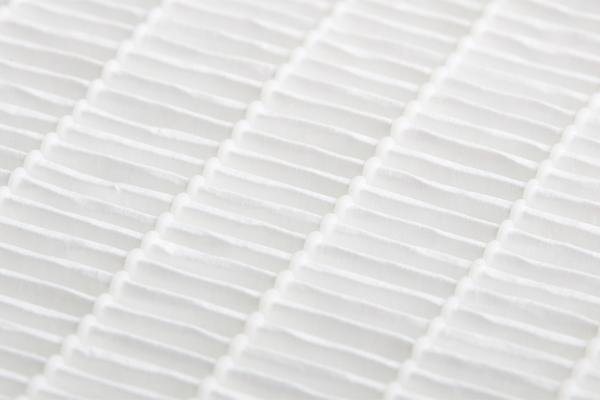


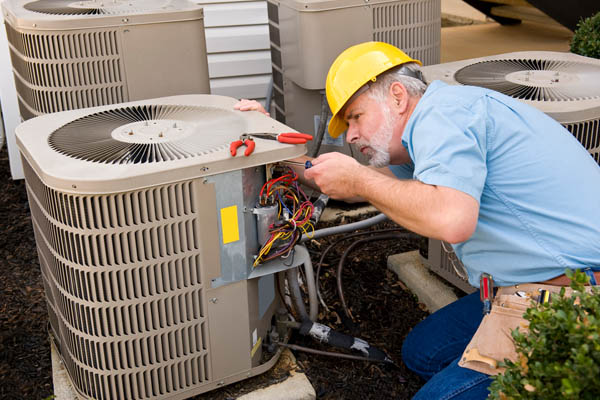
 Are you becoming increasingly concerned about high levels of humidity in your home? Do the health risks and damages that come with this humidity concern you? If so, then it’s time to think about possible solutions. This way, you can mitigate some of the damages that can result from high humidity in your home.
Are you becoming increasingly concerned about high levels of humidity in your home? Do the health risks and damages that come with this humidity concern you? If so, then it’s time to think about possible solutions. This way, you can mitigate some of the damages that can result from high humidity in your home.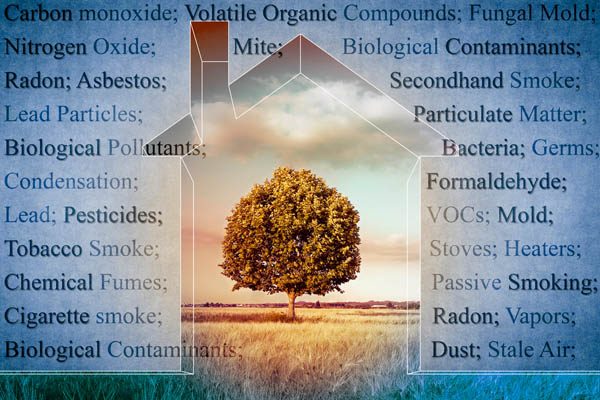 According to OSHA (Occupational Safety and Health Administration), one of the biggest contributors to poor indoor air quality is humidity. High humidity is the perfect breeding ground for mold, mildew, viruses, and bacteria. Additionally, high humidity in a house can cause health problems such as respiratory infections and breathing problems. People with asthma and other respiratory diseases will generally breathe easier in less humid conditions.
According to OSHA (Occupational Safety and Health Administration), one of the biggest contributors to poor indoor air quality is humidity. High humidity is the perfect breeding ground for mold, mildew, viruses, and bacteria. Additionally, high humidity in a house can cause health problems such as respiratory infections and breathing problems. People with asthma and other respiratory diseases will generally breathe easier in less humid conditions.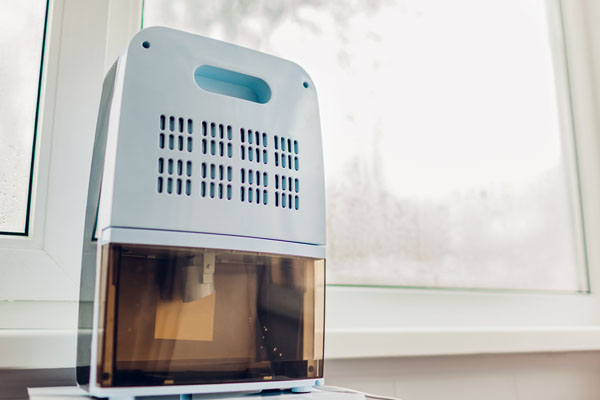 It’s important to understand that high humidity affects indoor air quality, not only when it comes to the health of your family, but also as it impacts your home. While it can certainly contribute to a variety of health conditions, it can also make you feel uncomfortable because your home will feel hotter than it actually is. Additionally, high humidity in a home can cause floors to warp and paint to peel as well as bad odors and stains on walls and ceilings. This type of damage can quickly lead to expensive repair bills.
It’s important to understand that high humidity affects indoor air quality, not only when it comes to the health of your family, but also as it impacts your home. While it can certainly contribute to a variety of health conditions, it can also make you feel uncomfortable because your home will feel hotter than it actually is. Additionally, high humidity in a home can cause floors to warp and paint to peel as well as bad odors and stains on walls and ceilings. This type of damage can quickly lead to expensive repair bills. There are two types of dehumidifiers, portable and whole-house units. While both types are designed to remove high humidity in a house, there are some key differences. A portable dehumidifier is just as its name implies — portable. You can move it from one room to another, but it works only in one area of your home at a time. On the other hand, a whole-house dehumidifier works with your home’s HVAC system and will remove excess humidity throughout your home, keeping everyone in the home comfortable.
There are two types of dehumidifiers, portable and whole-house units. While both types are designed to remove high humidity in a house, there are some key differences. A portable dehumidifier is just as its name implies — portable. You can move it from one room to another, but it works only in one area of your home at a time. On the other hand, a whole-house dehumidifier works with your home’s HVAC system and will remove excess humidity throughout your home, keeping everyone in the home comfortable.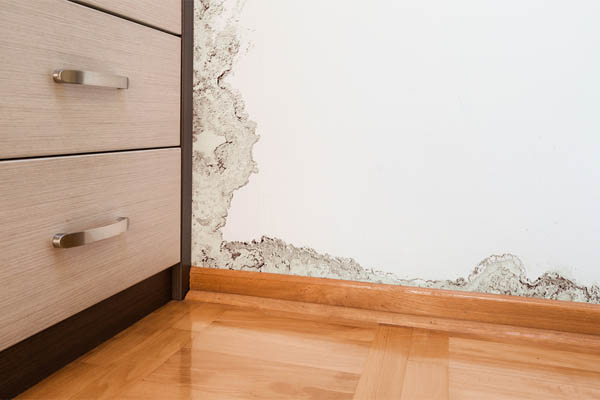 There are pros and cons for using a portable dehumidifier vs. an air conditioner for removing excess moisture in your home. It really comes down to what is most important in your decision-making process. When you purchase a portable dehumidifier it will certainly be less expensive than installing a whole-house dehumidifier. Maybe this is a better option for those who just need to remove humidity from one room. For example, maybe you have a bathroom that doesn’t have a window or exhaust fan so a portable unit will be your best option.
There are pros and cons for using a portable dehumidifier vs. an air conditioner for removing excess moisture in your home. It really comes down to what is most important in your decision-making process. When you purchase a portable dehumidifier it will certainly be less expensive than installing a whole-house dehumidifier. Maybe this is a better option for those who just need to remove humidity from one room. For example, maybe you have a bathroom that doesn’t have a window or exhaust fan so a portable unit will be your best option.